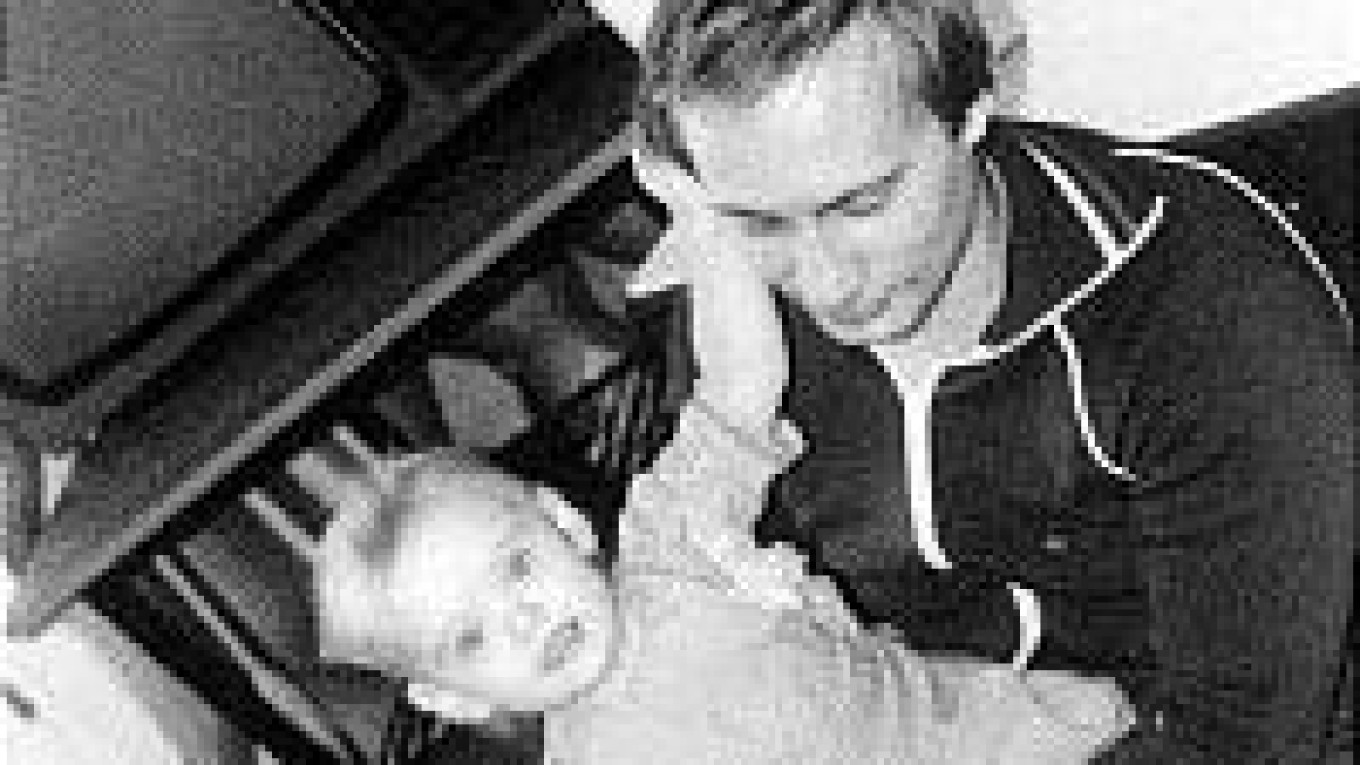The book, "Sosluzhivets," or "Professional Comrade," was penned by Vladimir Usoltsev, who sat at a desk across from Putin -- known then as "little Volodya" -- during the future president's posting to the East German city of Dresden from 1984 to 1990. Both men held the rank of major.
The book sheds some light on what Putin did as a KGB officer in Dresden and who he was perceived by his peers.
The officers drank Crimean champagne after Chernenko's death in 1985 because he left the leadership quickly rather than first suffering lingering illnesses like his two predecessors, Leonid Brezhnev and Yury Andropov, according to a recent report about the book in the German weekly Der Spiegel. The book is to be published in Russia soon.
"We were the young generation of the security service. It was absolutely clear to us that Soviet power was marching inexorably into the abyss," Usoltsev, now 56, was quoted by Der Spiegel as saying.
Dresden offered little excitement, and the salaries of the KGB officers stationed in East Germany were miserable, the book says, according to Der Spiegel. Prestige and good wages belonged to those who operated in West Germany.
The lives of the handful of KGB officers stationed in Dresden is described as a small world, as if they were on a spaceship on a long flight -- "a microcosm in which recent graduates of the secret service school met with dogged old Chekists. A world full of stupid work with files, instructive party circles and human intrigues."
Usoltsev portrays Putin as an ambitious pragmatist, "someone who thinks one thing and says another." He describes him as a conformist who did not stand out.
Putin's job was to seek potential KGB agents among the foreign students at Dresden's Technical University, whom he met in his car or on the moors around Dresden. Putin treated a certain Rainer M., an East German policeman who helped the KGB recruit Latin American students, "almost as if he were a family member." Rainer M. was arrested and charged with espionage after the fall of the German Democratic Republic.
Putin hid his ambitions and sometimes tough treatment of others under an image of politeness and obedience that served him well with his various bosses and later with President Boris Yeltsin in the Kremlin, the book says.
He presented himself as a committed Communist who had no wish for changes in the Soviet Union and criticized a colleague who did, saying he should keep his complaints to himself and think of his family.
But while Putin by all appearances conformed, he readily opened up in small groups. Usoltsev said Putin sometimes surprised him with his political opinions during their weekly visits to a sauna.
Chernenko's death made way for the reformer Mikhail Gorbachev, who set new political forces into motion.
Putin showed an interest in civil rights activist Andrei Sakharov, whom Gorbachev released from internal exile. Putin, however, did not want to admit that under Stalin, secret service officers shot people regardless of their guilt to fulfill a quota set by Moscow, the book says.
Usoltsev said Putin displayed a tolerance for Jews that was unusual in the KGB, which was deeply anti-Semitic and saw Jews behind everything that they considered anti-Soviet.
For Putin, Jews were ordinary people; he had grown up among them in the sport clubs of Leningrad, where many trainers and top athletes were Jewish.
Usoltsev describes Putin's German as "fluent, but basic," and ranked his intellectual abilities as "good, but nothing special; he was not a great speaker."
He said Putin's greatest achievement in Dresden was to rescue a list of KGB contacts from a local office of the Stasi, the East German security police, just before the fall of the Berlin Wall in 1989.
Usoltsev was amazed, as were other Dresden colleagues, to hear that Putin had ended up holding a high political office, even though Putin was always very ambitious.
He was also surprised when, after the collapse of the Soviet Union, Putin turned up as the right-hand man of St. Petersburg Mayor Anatoly Sobchak. By 1990, Putin had resigned himself to quitting the KGB and becoming a taxi driver.
Usoltsev suggests that Putin was working for Sobchak as a KGB officer on a special mission.
Now in the Kremlin, Putin is still heavily dependent on the secret services, the book says. "That for me is the greatest puzzle," Usoltsev writes. "That's his tragedy."
A Message from The Moscow Times:
Dear readers,
We are facing unprecedented challenges. Russia's Prosecutor General's Office has designated The Moscow Times as an "undesirable" organization, criminalizing our work and putting our staff at risk of prosecution. This follows our earlier unjust labeling as a "foreign agent."
These actions are direct attempts to silence independent journalism in Russia. The authorities claim our work "discredits the decisions of the Russian leadership." We see things differently: we strive to provide accurate, unbiased reporting on Russia.
We, the journalists of The Moscow Times, refuse to be silenced. But to continue our work, we need your help.
Your support, no matter how small, makes a world of difference. If you can, please support us monthly starting from just $2. It's quick to set up, and every contribution makes a significant impact.
By supporting The Moscow Times, you're defending open, independent journalism in the face of repression. Thank you for standing with us.
Remind me later.


